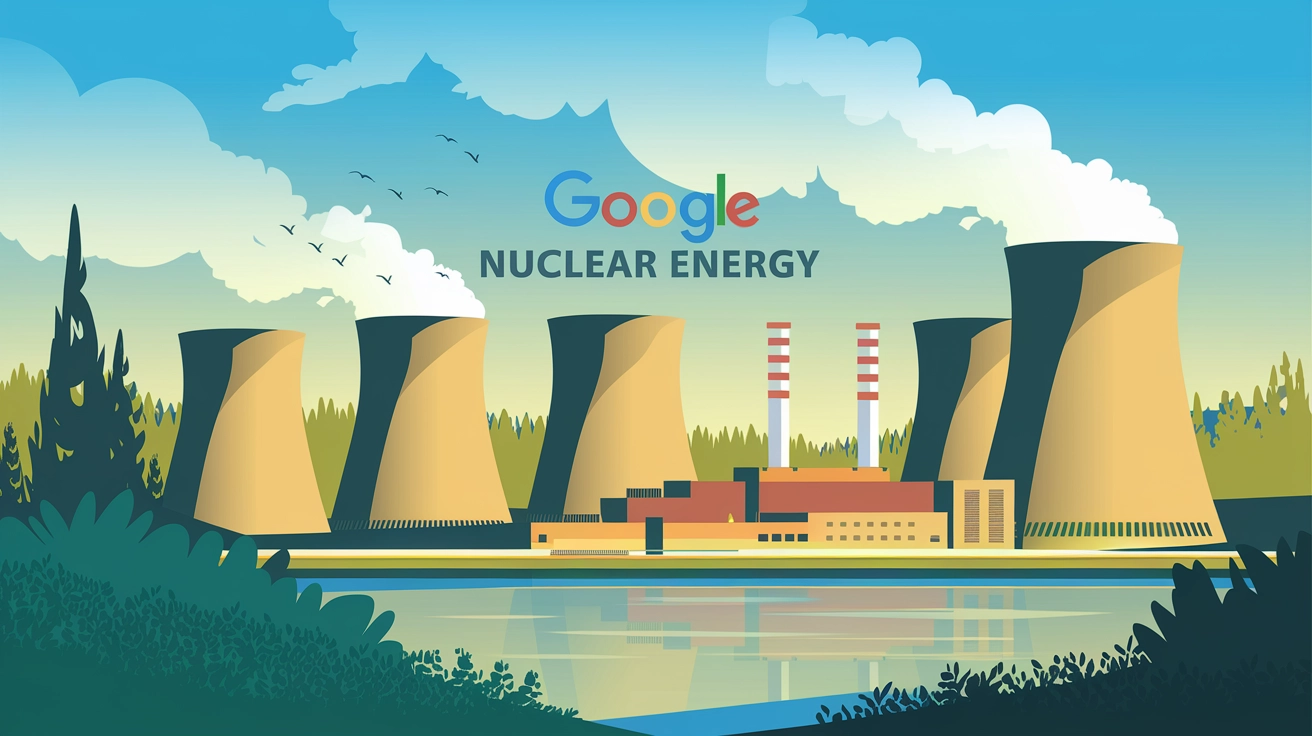Google’s Nuclear Power Plan for AI Datacentres

Introduction: Google’s Innovative Energy Strategy
In a pioneering move, Google has signed what is termed a “world first” agreement to source energy from a fleet of small modular nuclear reactors (SMRs) to meet the increasing energy demands of its artificial intelligence operations. This deal, with California’s Kairos Power, marks a significant shift towards utilizing nuclear power for tech infrastructure.
Details of the Nuclear Energy Agreement
Google’s order comprises six or seven small nuclear reactors, with the first expected to be operational by 2030 and the rest by 2035. This venture aims to provide a low-carbon energy alternative to power the company’s data centres, which consume large amounts of electricity. According to Google, nuclear energy offers a reliable, clean power source capable of consistently meeting their substantial electricity requirements.
Addressing Growing Energy Demands
The explosive growth in AI applications and cloud services has spurred a dramatic increase in electricity consumption among tech companies. Following suit, Microsoft and Amazon have made similar moves towards integrating nuclear energy into their operations to bolster their energy sources.
The Impact of the Nuclear Deal
This agreement functions as a substantial endorsement for SMR technology, which is designed to provide cleaner, more manageable energy solutions compared to traditional large-scale nuclear plants. According to Michael Terrell, senior director for energy and climate at Google, this deal positions the company to unlock the potential of AI technologies while addressing the challenges of energy supply.
Regulatory and Operational Insights
While the deal is groundbreaking, it is contingent on obtaining necessary regulatory permits. The smaller size and modular design of the reactors are expected to mitigate the cost and efficiency challenges typically associated with the construction of larger plants. However, critics have raised concerns about potential costs and whether SMRs can achieve expected economies of scale.
Technological Versatility of SMRs
SMRs are designed with a maximum output capacity of around 300 megawatts (MW) and can generate over 7 million kilowatt-hours daily. Advocates assert that these small reactors could offer more flexible solutions, reducing reliance on fossil fuels and facilitating new installations in regions where traditional reactors are unsuitable.
Future Prospects in the UK
The UK government is currently pursuing the development of SMR technologies, with several bidders vying for approval to advance their projects. Companies like Rolls-Royce are looking to build fleets of SMRs, emphasizing a transition towards cleaner energy alternatives.
Concerns and Criticism
Despite the promising outlook for SMRs, environmental activists caution against a hasty pivot to nuclear energy, arguing that resources could be better allocated towards renewable sources such as wind and solar power. Skepticism remains regarding the track record of SMR technology, particularly in the UK context.
Conclusion: A Transformative Step for Google
Google’s commitment to integrating nuclear energy into its energy mix for AI data centres underscores a bold stride in addressing the growing energy demands of modern technology while pursuing sustainability goals. As the world watches, the outcomes of this venture will likely inform future energy strategies in the tech industry.